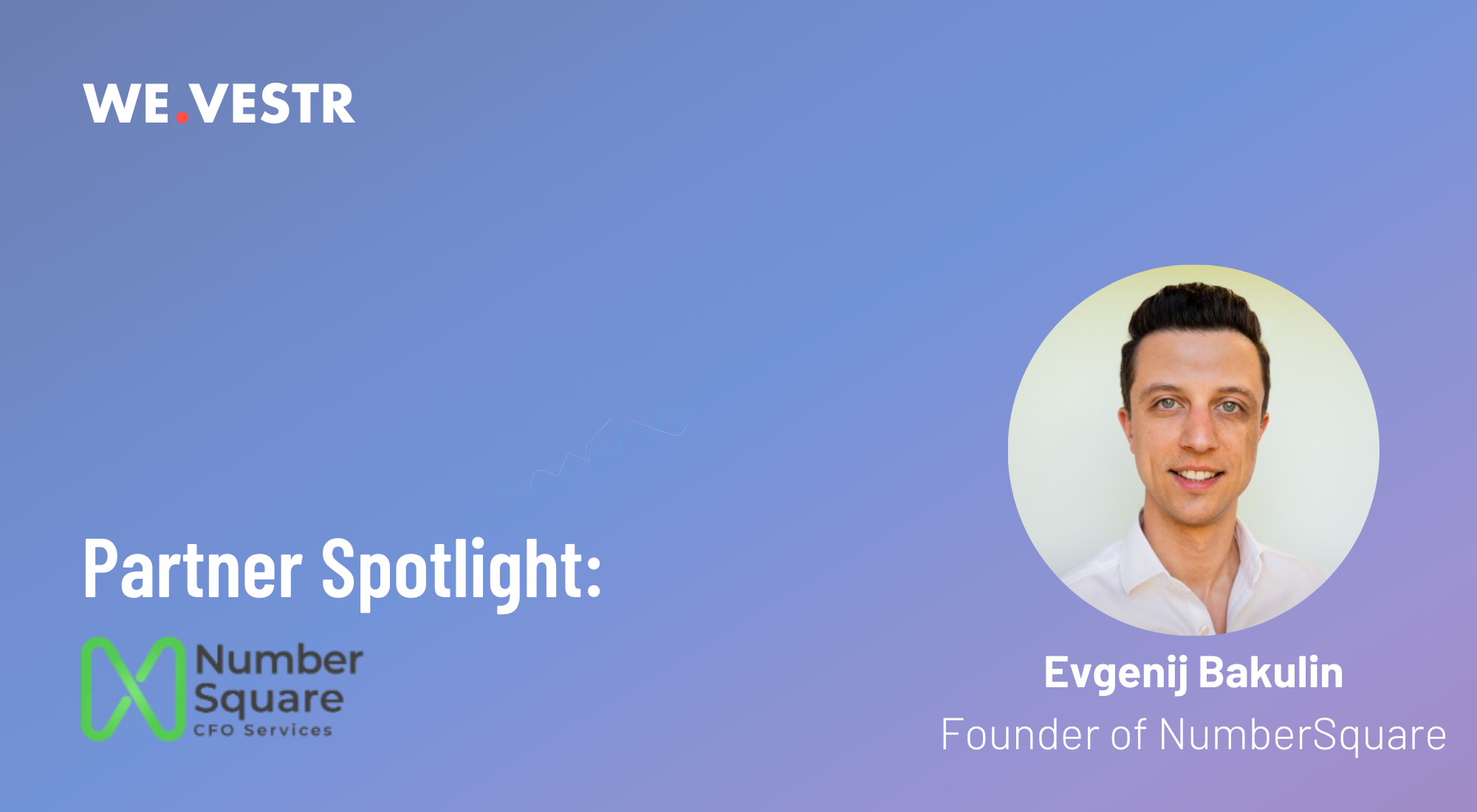Partner Spotlight: Evgenij Bakulin, NumberSquare

Founder FAQ’s from a CFO (as-a-Service)
This week, we caught up with our friend Evgenij from NumberSquare, a CFO-as-a-Service partner of ours with a dedicated focus on startups and scaleups in the German market; to understand what are some of the common questions early-stage founders ask to get their financial ducks in a row?
What tool should I use for my business forecast?
There are lots of tools out there for preparing company forecasts and budgets. However startups by their early-stage nature, come with very unique business models. Therefore standard tools (designed for more established companies in mind) cannot model special cases and would require workarounds.
Spreadsheets, as a first resort can be very versatile and allow modelling any business approach easily. Additionally people in the finance world are used to reading spreadsheets, which makes communication often easier. Of course there are tools like WE.VESTR that are actually designed with early-stage founders in mind and can help with how you report KPIs to your shareholders easily but otherwise a spreadsheet in the early stage should be enough to get you going.
Which KPIs are important for my business?
Startups will aim to stretch the boundaries of business models -that’s often where their USPs will lie. So KPIs are often very unique for each business. A good practice is to apply typical industry metrics in combination with individual ones.
I would say it’s also important to define the purpose of KPIs before starting to develop them. Are they required for internal operations or for external reporting to stakeholders? The answer will define different sets of metrics that need to come into place. Having said that, it is important to remember that the KPI for internal and external reporting is always based on a single source of truth. KPIs should also have a forecasting character, so that leading metrics can be used in order to understand how the business will develop within the next 3-6 months.
When should I start preparing my funding round?
Companies who want to raise VC funding in Europe should start preparing for their funding round, 9-12 months before they need the money. This includes having initial touchpoints with potential investors, optimising the business model and preparing documents.
Investors in Europe are often more conservative than their US counterparts, so preparation, Q&A and due diligence can take longer than what companies are used to in other regions, where the time-frame can be as short as a few months.
Is my company a VC case?
The vast majority of venture capital investors are aiming at exiting their investment within a time frame defined by the fund. A general rule of thumb is an anticipated exit within 5-7 years with at least 10x return on investment. Therefore startups interested in the VC track should ask themselves if their business has the potential to increase tenfold in value within this period. If it can, founders need to verify if they tick the boxes that are important to investors: team, market size, competition, IP and defendability to name a few.
More broadly speaking, are there assets that can be invested in? If the answer is yes, then your chances to raise interest from VCs should be good.
How can I manage my cap table simply?
The idea of a cap table is simple. List all shareholders and calculate their percentage ownership in your company. However after one of two funding rounds things become messy very quickly. Virtual shares assigned to employees bear conditions such as vesting that are difficult to track. Liquidation preferences in various funding rounds add another layer of complexity. Fully diluted and non-fully diluted views need to be modelled and explained to stakeholders. Additionally employees want to know how their shares are developing and be able to check their status. Because of these factors spreadsheets are not ideal for cap table management. Tools like WE.VESTR help startups to easily manage their cap table, simulate different options and provide transparency.
Here at WE.VESTR we know how complicated cap tables can get, especially as the business begins to grow and have teamed up with Evgenij for a virtual Q&A on some of the common financial pitfalls early-stage founders face when it comes to getting the business running. Join us for a live Q&A here!
More on NumberSquare:
NumberSquare is a CFO as a Service company dedicated to startups and scaleups. Founders and CEO/CFOs can focus on their core tasks while NumberSquare is having their back with the financial side of the business. External CFOs and finance specialists at NumberSquare are supporting businesses with financial modelling, cap table management, cash management, funding rounds and more. Find more info at https://numbersquare.de/.
